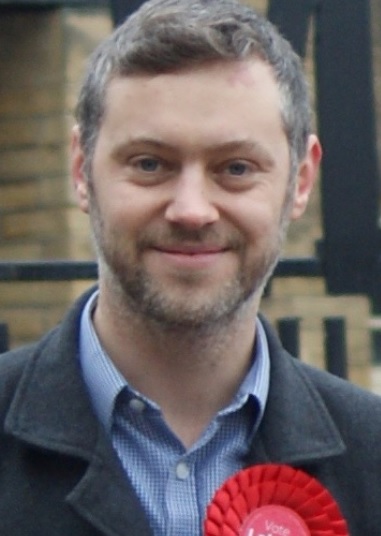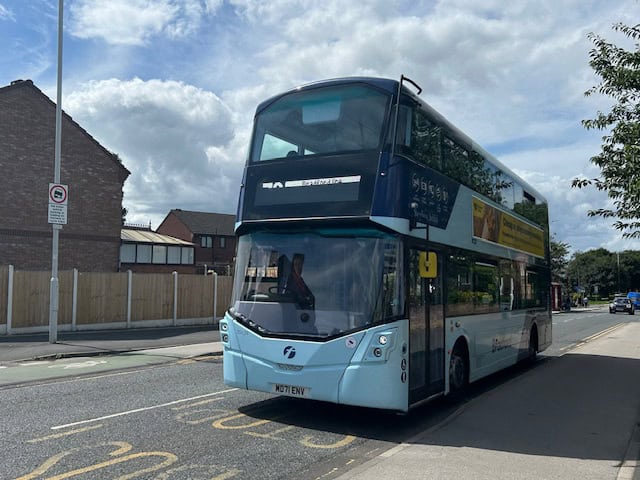By Chris Young, local democracy reporter
“We can’t afford to have so many people not feel safe on our buses.” That was the reaction from a Calverley and Farsley councillor after statistics revealed just 41 per cent of women in West Yorkshire feel safe catching a bus at night.
The same data showed that more than half of local women under the age of 35 have decided to drive or get a taxi instead of getting a bus or train because of fears over crime or harassment.
The stark figures come from a recent survey of residents across West Yorkshire, and one bus company boss acknowledged the issue of women’s safety was one the industry needed to address.
The survey of over 1,800 people carried out by West Yorkshire Combined Authority asked a variety of people for their opinions on issues including punctuality of buses, quality or roads and how satisfied they are with the condition of the region’s roads.
The results of the survey were presented to the Authority’s Transport Committee at a meeting on Wednesday.
One question in the survey asked whether people “felt confident in their personal safety while using local buses.” They were asked to respond based on journeys in the day and the night.
While the vast majority felt safe in the day – 87 per cent of women and 88 per cent of men, the responses were very different for catching the bus in the evening.
68 per cent of male respondents said they felt safe travelling by bus in the dark – but just 41 per cent of women felt the same way.
There was also a lack of confidence on travelling at night from people who were over 65 – with just 43 per cent feeling safe, and disabled people (36 per cent).
People were also asked if they had taken measures to avoid anti-social behaviour or crime on public transport.
The survey added: “Results across three years show that: 42 per cent of female respondents had used a car or taxi instead of walking or cycling, and 41 per cent had done so instead of using a bus or train.
“Young people were more likely to change their mode; 50 per cent of women aged 16 to 34 had used a car or taxi instead of walking or cycling and 54 per cent had done so instead of using a bus or train.”
It found that high numbers of people living in the most deprived areas, those who are disabled, and ethnic minorities were avoiding buses travel for safety reasons.
The survey also found that 75 per cent of women felt a good bus service was important – compared to just 65 per cent of men.
And people living in deprived areas relied on bus services more – with 38 per cent in such areas describing themselves as regular bus users compared to just 26 per cent of the people living in more affluent areas.

At the meeting Councillor Peter Carlill (Lab, Calverley and Farsley) said: “There are a huge number of women and girls choosing not to use our bus network – we can’t afford to have so many people not feel safe on our buses.”
Councillor Caroline Firth (Lab, Keighley East), added: “These stats are horrific. Women need to feel safe using public transport at night.”
Calling for more work to be done on the issue, she added: “We need to find out if this fear is based on perception or fact. What are the Combined Authority and the Police going to do about this?
“We know that women have less choice to access a car than men.”
Simon Warburton, Executive Director of Transport for the Authority, acknowledged that decisions about bus transport were largely made by men.
He said: “Is the transport industry too white and too male? Yes, undoubtedly it is.
“I think where we benefit in West Yorkshire is very strong political leadership that isn’t white and male.”
He said the authority was “very serious” about getting more women into senior transport roles – and this would help give a female perspective to issues effecting public transport.
He pointed out that last year Ms Brabin launched a “Safer Travel Team” – 15 PCSOs, led by a police sergeant, patrolling bus stations and buses across West Yorkshire.
The aim was “To reduce crime and anti-social behaviour, increase the safety of women and girls, and reassure and protect vulnerable travel users.”
Brandon Jones, head of External Relations at First Bus, said safety on buses was a national issue, adding: “I accept that it is something we need to address.”
The number 72 bus service linking Leeds and Bradford, which travels through West Leeds, will become the region’s first 24-hour service from September 1.


If the bus companies reverted to having a conductor on the buses in the evenings I am sure this would alleviate much of the problems addressed In this article. I am confident that a slightly higher fare would be acceptable by most bus users to pay for this and the increase in passenger numbers would also go a long way to paying the extra costs.
The 72 bus did used to have conductors on it for a short while when they were running the bendy ‘Hyperlink’ branded buses on the route several years ago. First quietly scrapped those bendy buses and replaced them with regular double deckers, I wonder what happened to the extra staff.